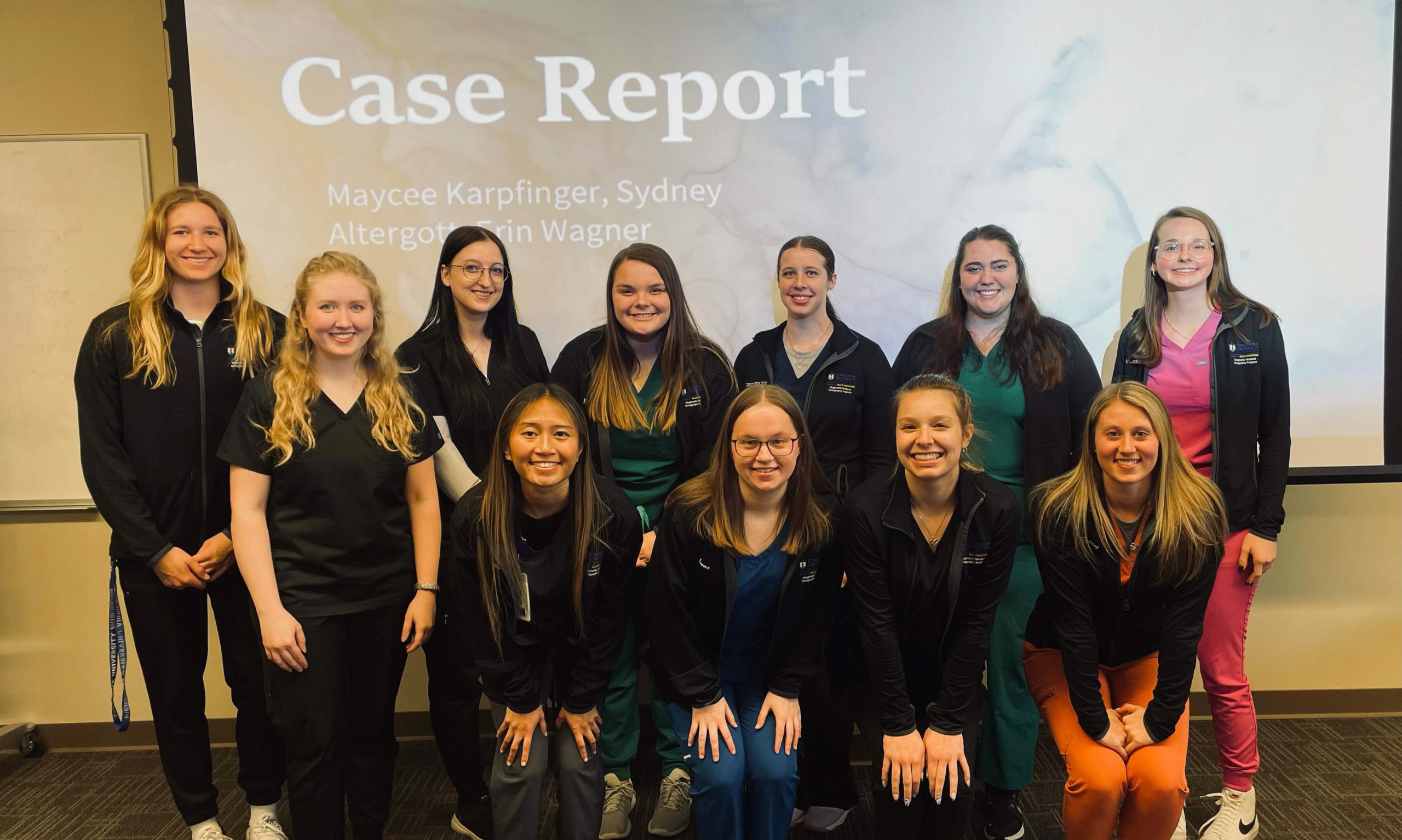
Recently, an interprofessional education event was held at CUW which allowed the Diagnostic Medical Sonography (DMS) and Physician Assistant (PA) Studies students to combine their unique skill sets.
Benefits of Interprofessional Education
Interprofessional Education (IPE) is an approach to teaching and learning that brings together students from two or more professions to learn about, from, and with each other in service of enabling effective collaboration.
At a recent IPE event at Concordia, DMS students selected interesting cases they have seen in the clinical setting. The case presentations showcased clinical symptoms, images, labs, and diagnoses. During the event, the case findings were slowly revealed to allow PA students an opportunity to ask pertinent questions, provide feedback and ultimately identify diagnoses, next steps and any potential gaps in care. Similar to putting pieces of a puzzle together, this is commonly referred to as the diagnostic process.
This event is helpful for both PA and DMS students because of the opportunity it provides the professions to learn from each other. When the DMS student is presenting, the presenter can gain insight into what kind of clinical questions the PA students want answered. It is very interesting to gain a PA perspective on additional imaging or how they would have wanted a care plan to go differently.
The interprofessional interesting case event is the culmination of four semesters of case reports for DMS students. This event allows our emerging sonographers to collaborate with other future clinicians in PA Studies by unfolding details of complex patient cases. It is beneficial across both disciplines, giving each a better understanding of the other’s role.
Director of Diagnostic Medical Sonography Lisa Reimer
This event was also beneficial for PA students to hear how the sonographer performs the exam while correlating the patient’s clinical information. Together, the DMS and PA students are able to see and work through some complex cases. Some of these cases identified a delayed diagnosis which provides a chance for students to identify what could have been done differently to improve the patient’s outcome.
From this event both student groups can work together to uncover information on these cases which can help identify best practices and ultimately provide the highest quality patient care in the clinical setting. This event demonstrated the importance or collaborating in healthcare because each specialty looks at things in a different way because each specialty has a very unique skill set.
PA and DMS students were able to participate in an afternoon seminar discussing clinical evaluations of common urgent conditions. In these cases, ultrasound examination was used for confirming a diagnosis that was suspected based on each patient’s complaints and physical exam findings. This is an outstanding example of how diagnostic clinicians and diagnostic sonographers understand each other’s thought processes in arriving at a patient’s diagnosis.
PA Medical Director/Professor of Pharmaceutical Sciences Ernest Stremski, MD, MBA
Importance of interprofessional collaboration in healthcare
In healthcare there is never just one provider responsible for patient care. Effective patient care requires a team of individuals, each having their own area of expertise and responsibility for communicating the perspective on what is best for the patient. Having good communication throughout a healthcare team is essential in order to provide the best patient outcome.
The healthcare team is able to communicate and work together to create the best plan of care possible for each unique patient. Each team member is essential in contributing to the patient’s outcome whether the team member is a nursing assistant helping keep the patient comfortable and assisting them with their daily tasks, or a surgeon performing a lifesaving surgery. When all the members are able to effectively collaborate, the patient receives the best possible experience.
What is Diagnostic Medical Sonography?
Diagnostic Medical Sonography, also called ultrasound, is an imaging method that uses sound waves to produce images of structures within your body. The images can provide valuable information for diagnosing and directing treatment for a variety of diseases and conditions. Concordia’s Diagnostic Medical Sonography Program offers three distinct pathways to prepare you to step forward in your calling as a medical sonographer. The program will train you to be versatile in this multi-specialty profession by increasing your knowledge of anatomy, physiology, and critical thinking. The students are taught through hands-on clinical training at our on-campus ultrasound lab, and diverse clinical rotations to use high-tech instrumentation, including high-frequency sound waves, to create images of the human body to assist in medical diagnoses under the guidance of an interpreting physician.
Want in?
Diagnostic Medical Sonography
Diagnostic Medical Sonography, also called ultrasound, is an imaging method that uses sound waves to produce images of structures within your body. The images can provide valuable information for diagnosing and directing treatment for a variety of diseases and conditions.
Concordia’s Diagnostic Medical Sonography program offers three distinct pathways to prepare you to step forward in your calling as a medical sonographer. The program will train you to be versatile in this multi-specialty profession by increasing your knowledge of anatomy, physiology, and critical thinking. The students are taught through hands-on clinical training at our on-campus ultrasound lab and diverse clinical rotations to use high-tech instrumentation, including high-frequency sound waves, to create images of the human body to assist in medical diagnoses under the guidance of an interpreting physician.
Physicians Assistant Studies
Concordia’s Physician Assistant Studies is a 26-month, full-time program at the end of which you’ll earn a master’s degree. You will receive the advanced training to collaborate with one or more physicians and be able to examine, diagnose, treat, and counsel patients. There is a significant need in health care for high-level professionals. At CUW, we strive to prepare you to provide quality health care in a respectful, caring manner.